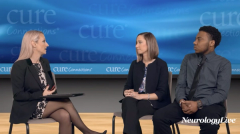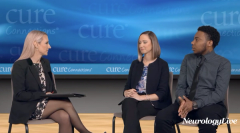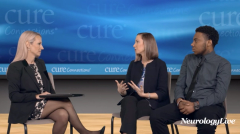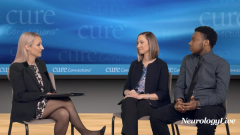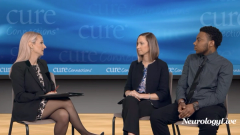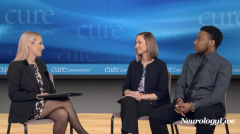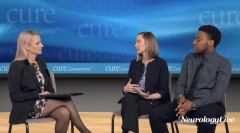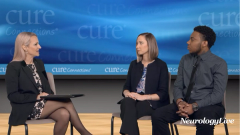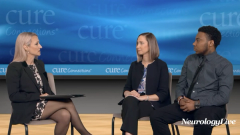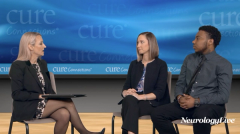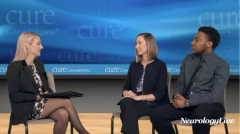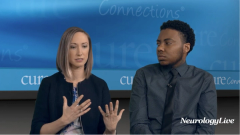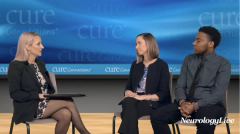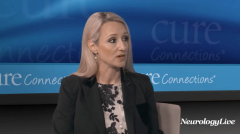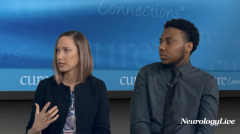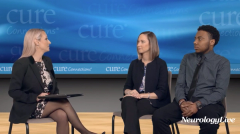
Adopting Neuromuscular Therapies for SMA
Episodes in this series

Philippa Cheetham, MBChB, MRCS, MD, FRCS: We've heard about all these treatment options that are very specific to the protein of the disease. And we started this segment talking about other differential diagnoses and neuromuscular disorders. Do you see any potential treatment options that are used for other neuromuscular disorders where you may be able to cherry pick some treatment options that have helped patients with similar but different diseases, whether there may be some applicability to bring those treatments into SMA [spinal muscular atrophy]? Or is it such a specific genetic issue that the treatments are tailor-made to those individual conditions?
Crystal Proud, MD: Both, actually. We are being able to choose our treatments based on the molecular specificity of what a patient's DNA tells us has gone wrong, and that's incredibly exciting. But we also can lean on other potential treatments that may help protect muscle stability and nerve stability from other diagnoses, although I see it actually as being the other way around. We are utilizing in clinical trials now some muscle stabilizing agents that might actually be applicable to some of our other patients outside of SMA. We're using them in SMA clinical trials. But perhaps one day we’ll be able to utilize them in patients with, for example, Duchenne muscular dystrophy. And so I'm excited that a lot of our story is starting with SMA, which is really a place where most people didn't expect the story would start. And to see it branching from there outward, it's really exciting.
Philippa Cheetham, MBChB, MRCS, MD, FRCS: What about the future in terms of trials? We've talked already about the cocktail, the combination. It’s easy to compare nothing with something, but do you think there are benefits to giving a cocktail of drugs orally and intrathecally? And what is the concern about the risk of giving multiple medications in cocktails and potential [adverse] effects in terms of drug metabolism, for example?
Crystal Proud, MD: Those are some of the unknowns that need to be answered. Are there adverse effects that could be identified if patients are receiving more than 1 treatment? That's where I really think that we need to do our due diligence and evaluate these. When we look at each of the medications individually, there are risks individually with them. And if we can look at how the body is processing these, that may give us some insight into knowing the risks that may come with utilizing them in combination.
The other clinical trial that had a major impact on our practice was referred to as the NURTURE trial. That was looking at treating babies who had been identified early just through genetic testing, so they weren't showing symptoms yet. Those babies received treatment at less than 6 weeks of age.
And now, looking at how they have grown and developed over time, I believe that on the last data cut, the average age was about 3, and 88% of those kids are walking. That tells us that early intervention is key here. And so my goal is to be able to help facilitate diagnosis and early treatment while continuing to pursue some of these other avenues of research opportunities in the future as well.
Philippa Cheetham, MBChB, MRCS, MD, FRCS: So often on Cure Connections®, we talk about clinical trials and the future treatment options for patients where treatments are not FDA approved. And lots of patients, understandably, are very frightened by the words “clinical trial.” Nobody wants to think that they're a guinea pig. But you have a child who's got SMA and no treatment is available, and then there's a potential treatment that can have such a dramatic improvement, then it's really a no-brainer, isn't it?
Crystal Proud, MD: Yes, I find that my patients with life limiting illnesses are much more readily enthusiastic about participating in clinical research trials. I also try to reassure them that it is not within my wishes to offer them something that I don't think might have the potential to benefit them. That comes back to good clinical practice and our ethics as physicians to make sure that what I'm offering them is something that I truly think may be helpful. And to be upfront about the potential for them to receive something like the placebo. I can't guarantee that you'll be getting this medication if you're participating in a clinical trial. But my hope would be that you would be able to receive it at some point if it is proven to be helpful.
Philippa Cheetham, MBChB, MRCS, MD, FRCS: For centers of excellence across the United States, I'm sure you're sharing information with other countries as well. Are we well ahead of the game in the United States, or are there other exciting areas of research outside of the United States?
Crystal Proud, MD: I think in the realm of SMA, we've done quite well here in the United States. Unfortunately, the treatment that Sebastian is getting is not approved in all countries in Europe just yet. I'm hopeful that it will be. But we were quite early in that, and that was a phenomenal opportunity for our patients here. But we would like to see that become an opportunity for patients worldwide.
Philippa Cheetham, MBChB, MRCS, MD, FRCS: Thank you both very much, this was such an enlightening and informative session on SMA, and it's wonderful to hear that you're doing so well, Sebastian. And it's really wonderful to hear that there are central sites like SMA.com where patients can go to get information. Hopefully, you'll be inundated with many requests for further advice for patients who are watching this session. Thank you so much.
Newsletter
Keep your finger on the pulse of neurology—subscribe to NeurologyLive for expert interviews, new data, and breakthrough treatment updates.

